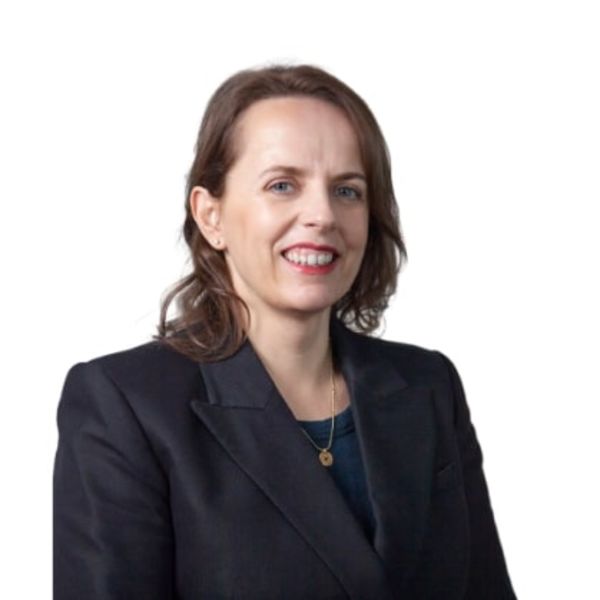
6 Things You Need to Know About Having a Baby After 35
Trying for a pregnancy after 35? Here are 6 six things you need to know about your chances and when you should seek help if you’re struggling to conceive.
Many Australian women are choosing to wait before starting a family. Whether this decision is a result of financial, medical or career-driven motives, it’s important that you are informed of the impact having a baby after 35 can have.
Here we’ll explore six key factors first-time mums should consider when having a baby after 35 – both in terms of getting pregnant and having a healthy pregnancy. the future, speak with a fertility specialist to discuss your fertility journey. To learn more, watch our Fertile Minds Video on “Having a Baby After 35”.
Chances of conceiving as we age
A woman’s age is the single most important factor that can affect your chance of conceiving. If you’re over the age of 35 conceiving a baby may take longer.
“This is because as women get older, egg quality starts to decline. Some women with pre-existing gynaecological conditions that affect fertility, such as endometriosis, may find getting pregnant more challenging”, says Dr Louise Fay, Fertility Specialist with IVFAustralia.When to seek help if you’re struggling to conceive
Seeking fertility advice for the first time can be daunting for many women. If you’re over the age of 35 and have been trying unsuccessfully for six months consider speaking to a specialist at IVFAustralia.
Optimise your lifestyle to welcome a pregnancy
Your age may not be the only factor contributing to your chances of conception. For women over 35, lifestyle choices can significantly impact on increasing or decreasing your chances of a healthy pregnancy. A positive focus on diet, mental health and wellbeing is crucial. “Getting early and regular prenatal care improves the chances of a healthy pregnancy” adds Louise.Increased risk of miscarriage
Louise Fay explains, “One in four women will experience miscarriage in the first trimester and unfortunately this increases with age. By age 43, this will have increased to one in two” You can learn more about pregnancy loss and our miscarriage care program here.Medical disorders in pregnancy
Medical disorders such as hypertensive disorders (blood pressure), gestational diabetes and preterm birth have a higher incidence in first time mums over 35.Enjoy the journey
Having a baby over the age of 35 has wonderful outcomes - a healthy mother and baby. We’re here to guide you.Women with pre-existing medical disorders should have a pre-conception consultation with their specialist. Talk to your fertility specialist or GP about pregnancy planning.
Whether you’re trying to conceive, or you are planning for the future, speak with a fertility specialist to discuss your fertility journey. To learn more, watch our Fertile Minds Video on “Having a Baby After 35”.
- Transcript
Welcome to Fertile Minds.
My name is Louise Fay and I'm a fertility specialist with IVF Australia. Today, I'm going to talk about thinking of having a baby at the age of 35 or over.
Most first-time mums in Metropolitan Sydney are usually around the age of 33. Things to consider when we're having a baby over 35 are a few things in terms of getting pregnant, having a healthy pregnancy. Some women may have pre-existing conditions that may make their pregnancy more complicated and have already had a pre-pregnancy planning consultation, either with their medical specialist, their GP, a fertility specialist, or a specialist in maternal fetal medicine in obstetrics.
As you know, as we get older, for women having a baby over 35 may take a little bit longer because at the age of 35 and over, our egg quality starts to decline. This can prove to be problematic for some women who already have known gynecological conditions that may affect fertility, such as endometriosis.
From the age of 35 and over, getting pregnant can be a little bit challenging. It may take six months to get pregnant, it may take 12 months to get pregnant, it may take 18 months to get pregnant.
Sometimes, people do need fertility assistance after approximately six to 12 months. One can always discuss everything with their GP at an opportunistic moment, such as having their routine Pap smear for example, or if they're talking about family planning in the context of birth control, when's a good time to have a baby?
When women do get pregnant after 35, for majority of women, pregnancy is very straightforward. In the first trimester, the risk of miscarriage is a little bit elevated from 35 and over versus up to the age of 35. So say for example, under the age of 35, the risk of miscarriage is approximately 20 to 25%, and this does increase as we get older. It is up to one in two women get pregnant over the age of 40.
We talk about advanced maternal age by definition over the age of 35, but it is quite true advanced maternal age, having your first baby over the age of 40. This is not uncommon nowadays, as people do seek to have children older and later in life.
Knowing that the pregnancy is ongoing from the end of the first trimester is usually a wonderful experience. We focus on diet, we focus on wellbeing, we focus on mental wellbeing. Having a healthy pregnancy is very important.
There are some conditions that are more common in women as they get pregnant older. Medical disorders in pregnancy can be more common in women who get pregnant over the age of 35. These commonly would be disorders such as blood pressure. This is either gestational hypertension or preeclampsia. Some women might have a strong family history and may need to take low dose aspirin from early pregnancy.
Some women might have pre-existing conditions that might increase their risk, such as chronic hypertension or kidney disease. It is a good idea to discuss pregnancy planning with your GP or your specialist if these conditions are pre-existent.
Other conditions can increase your risk of pregnancy over 35, such as gestational diabetes. We do recommend early screening at the end of the first trimester for gestational diabetes. Women more at risk of diabetes in pregnancy are women who have conditions such as polycystic ovarian syndrome, women who are from Southeast Asian origin, and women who have strong family history of diabetes later in life, called type two or non-insulin dependent diabetes. For this reason, it is good to focus on diet in the terms of a low GI diet from pre-pregnancy onwards.
Overall, having a baby over the age of 35 usually has wonderful outcomes, a healthy mother and a healthy baby. If you've any questions regarding pregnancy planning over the age of 35, please feel free to contact IVF Australia to talk to a fertility specialist who is able to address these questions. Thanks for watching, and don't forget to press the subscribe button. If you've any questions, please feel free to leave a comment.
